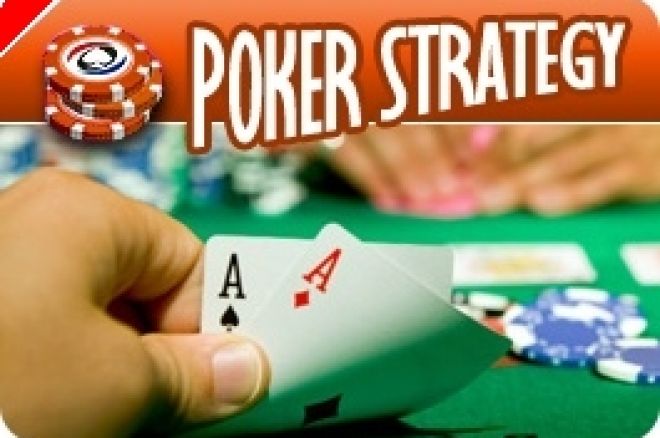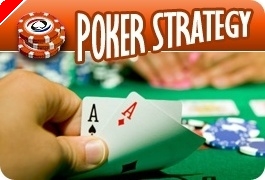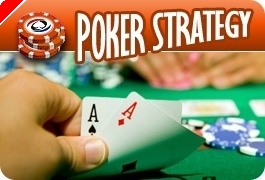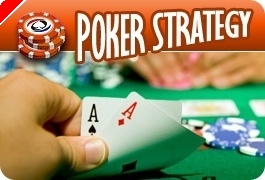Stud Poker Strategy: Fifth Street Quiz, Part 1 of 2

Let's focus on fifth street for a while. For me, it's the trickiest street to play, since one frequently has difficult decisions about how to play one's hand. Third street might be a more important decision, but in my book it's an easier one most of the time because so little action precedes your decision to act. There are fewer factors to consider. Similarly, on fourth street, sixth street and the river, it generally makes sense to call when there's a close decision because the cost of the bet is relatively small when compared to the size of the pot. That's not to say that these streets play automatically, but I find they're generally easier to play than fifth street.
Fifth street is tricky. The bets have just doubled. It's often tough to figure out exactly where you stand relative to your opponent or opponents. And the pot has often gotten fairly large, so it's something that you really want to fight to win.
Here's a fifth-street hand with a problem for you to ponder. It's provided not so much to test right and wrong but to encourage proper fifth-street thought. There is a right answer in my opinion, given the facts I'm presenting, but the process of ciphering out the correct answer is more important than memorizing the result.
So here we go:
The game is $20/40 with a $3 ante and a $5 forced bet from the low card. It's a casino game.
You've been drawing to a flush against two opponents. You have (K?8?)7?Q?8?. The 9? was folded on third street.
Starting to your left, your fifth-street opponents show: (x-x)3?9?3? and (x-x)A?3?8?. The guy who just paired his treys tends to be loose and a wild, though not a moron and not a maniac. The guy with the ace, who led out on third and fourth, tends to be straightforward. He's a solid player who rarely gets out of line. You are known as a solid tight and aggressive player. Some of your opponents undoubtedly think of you as too tight.
The guy with the door-card ace completed the bet on third and led out on fourth. The guy with the pair of treys called on third, called on fourth, and just bet $40 on fifth street with his exposed pair. The ace called.
It's up to you. Do you call, raise, or fold �C and why do you do what you do?
Think about it for a little while. Maybe even write down a brief answer. And then read below.
Here's my thinking on it. As I said, your thought process is more important in this exercise than getting the right answer. Hey, a random guess will be correct 33% of the time, right?
Your initial concern should be that you don't want to be drawing dead. And you don't want to be up against a flush draw (or a draw by trips to a full house either for that matter) that is a better draw than yours.
Let's first look at the possibility that you're drawing dead. There's only a very thin chance that you are �C only if the guy with the two treys just hit a full house. But that's only a very remote possibility since two of the four cards that he would need to be full are accounted for. Plus, if he did just fill up it's unlikely that he would open the betting when he's pretty sure that the player with the ace would start the action for him, since that player led out on third and fourth street.
There's also the possibility that the ace is drawing to a flush. If he is and you both hit a flush then his flush will almost certainly be higher than yours �C since his would be the ace flush and yours would be the king flush. But that's very unlikely as well when you take his betting history into consideration. As a straightforward player, he's unlikely to raise the bring-in and then bet fourth with only a drawing hand �C not even a good drawing hand on fourth with only three of four suited cards. It's much more likely �C in fact nearly a certainty �C that he started with a pair; either it was a pair of aces, the most likely possibility, or a wired premium pair.
There's another possible draw that he could have. The player with the ace could have trips. Poker is a game of probability, however, not certainty. So given his betting pattern and the low probability of such a hand, I would tend to discount that as of such low likelihood as not being worth worrying about.
When you boil down what's likely, you're probably against one opponent with a wired pair and a pair of threes �C or maybe only a pair of threes. Some loose and wild players bet almost automatically just because they have the high hand. And you're probably up against a pair of aces who just hit a three-flush.
Now that you've ciphered out what your opponents are likely to have, what are your chances of improvement, and how does that inform your betting decision?
You can improve in a couple of ways. First, you can catch your flush. There are seven spades left (13 minus your four, one that your opponent has exposed, and one that has been folded) out of 38 (52 minus the 14 that have been exposed or that you have equals 38). 31 of them don't help and seven do. That's 4.75-to-1 against your improvement to a flush.
But other cards may give you a winning hand as well. Your naked eights are almost surely behind what is a likely pair of aces and a possible two pair. But if you hit another eight or if you hit a second pair, especially with a king or a queen, you may well have the winning hand if the ace doesn't hit trips or aces up. So that adds some additional outs. Let's say, very roughly, that when you factor in all the ways that you can improve and win, and subtract the ways that your opponent can also improve to a better hand, that it's 4-to-1 against you drawing a winning card on sixth street and a little worse than 2-to-1 against you drawing a winning hand by the river. (If you'd like a more precise answer, well, send me an email and I'll see what I can do.)
The pot has your three bets from third, your three bets from fourth, and two bets from fifth, as well as the $29 in antes and the forced bet for a total of $229. It will cost you $40 to call. The pot is offering you about 5.5-to-1 odds. There is no chance that you will be raised on this street, so your call ends the betting. It surely doesn't make sense for you to fold given those pot odds, even without computing what the implied odds would be.
That being said, you might conclude that it makes sense to call. But there's another possibility. Maybe you should raise!
In my next column I'll continue this discussion on how to answer the question above. In the mean time, continue to think about what your better action would be �C to call or to raise.








